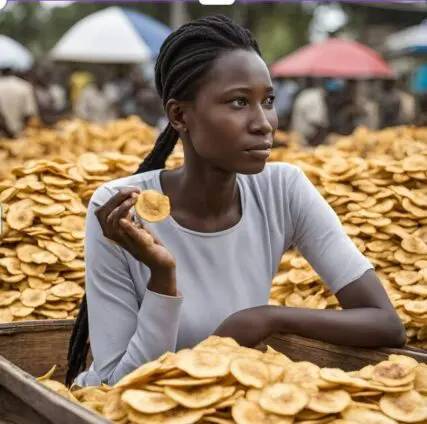Analyzing Africa’s international plantain trade can be surprisingly challenging due to a persistent issue in global trade data: the misclassification of plantains and bananas under the same customs (HS) code. Both plantains and bananas are often lumped together under HS code 080310, despite there being a distinct code for bananas (080390) that excludes plantains. This confusion is particularly frustrating when trying to parse trade statistics from global databases like Comtrade and Eurostat, as it makes separating the two crops difficult. Researchers and analysts often find themselves navigating through unreliable data sources or performing complex triangulation just to arrive at accurate insights.
This overlap might seem peculiar for many in Africa, where plantains are a staple food. However, in other parts of the world, the distinction between plantains and bananas is not always clear, sometimes even leading chefs to explain the difference to customers. This widespread misunderstanding contributes to the ongoing data confusion.
The consequences of this confusion are not just academic. They impact the ability to accurately track and understand trade patterns, particularly in Africa, where plantains are of significant economic importance. Africa is by far the dominant region in global plantain production, with seven of the top ten producers located on the continent. However, despite its production prowess, Africa is not a major player in global plantain exports. This discrepancy highlights the challenges African countries face in exporting their plantain surplus and reflects broader issues within agricultural trade and infrastructure on the continent.
A major reason for Africa's limited exports is the domestic consumption of plantains. In many African countries, plantains are a crucial food source, consumed widely in local markets. The lack of robust export infrastructure, combined with logistical challenges such as transportation and preservation, also contributes to the continent’s low export levels. These obstacles are compounded by global trade confusion, which makes it even harder for African exporters to engage in international markets effectively.
Despite these challenges, the potential for growth in Africa’s plantain export industry remains considerable. With improved trade data, better infrastructure, and increased awareness of the plantain’s unique characteristics compared to bananas, African countries could unlock new opportunities for global trade in plantains, benefitting from their strong production capacity while addressing the confusion that currently hampers the trade sector.




No comments yet
Be the first to share your thoughts!